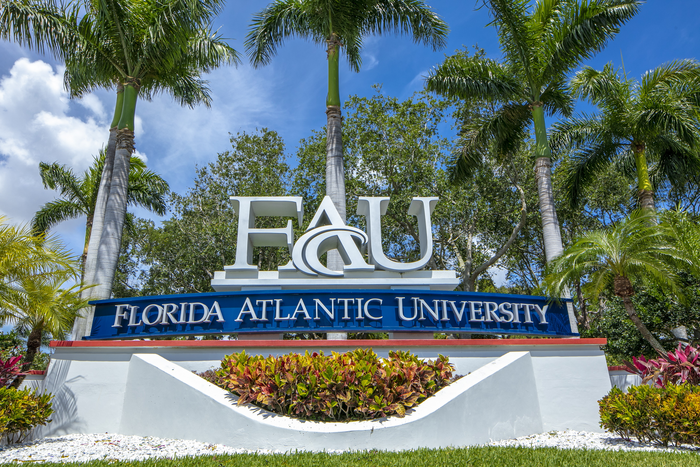Researchers from Florida Atlantic University, in collaboration with the University of New Orleans, University of Colorado at Denver, University of Florida and University of Utah, recently received a grant from the United States Department of Transportation (DOT) to establish the “Center for Equitable Transit-Oriented Communities” (CETOC).

Credit: Alex Dolce, Florida Atlantic University
Researchers from Florida Atlantic University, in collaboration with the University of New Orleans, University of Colorado at Denver, University of Florida and University of Utah, recently received a grant from the United States Department of Transportation (DOT) to establish the “Center for Equitable Transit-Oriented Communities” (CETOC).
Spearheaded by the University of New Orleans, CETOC will focus on “Preserving the Environment,” to support the U.S. DOT’s climate solution and sustainability goals. The center will promote transit access, multimodal infrastructure, compact and efficient land use patterns, as well as resilience and climate mitigation and adaptation. As a CETOC consortia member, FAU will receive approximately $2 million over five years.
CETOC will enhance multimodal transportation systems and sustainable communities through collaborative, multidisciplinary research, education, workforce development and technology transfer. Researchers will investigate the links between multimodal transportation, the built environment, and climate adaptation and resilience to address immediate and long-range regional and national transportation issues.
Focus areas will be on the planning, design, development, and management of places such as corridors, neighborhoods, cities, and regions where people have the ability to access transit to meet daily needs and depend on transit during disasters. Transit-oriented development focuses on the development of mixed-use, dense, walkable projects around transit locations. This project will take transit-oriented development one step further by creating and supporting transit-dependent populations and resilient communities with multimodal transportation options, affordable and equitable housing options, and economic security.
“When climate disasters such as hurricanes and wildfires hit, residents often need to evacuate. However, carless and vulnerable populations such as older and low-income people often lack the means to evacuate on their own,” said John Renne, Ph.D., deputy director of COTEC, a professor of the Department of Urban and Regional Planning, and director of the Center for Urban and Environmental Solutions within FAU’s Charles E. Schmidt College of Science. “For these populations, public transit and multimodal options can provide vital and life-saving support. Addressing issues of equitable access to opportunity requires strengthening the coordination of land use and transportation, improving the affordability of transportation and housing, and encouraging equitable transit-oriented development, particularly in disadvantaged communities.”
Transit-oriented development encourages transit ridership by increasing safety, accessibility, and activity around transit stops and reducing space devoted to private vehicles, prioritizes equitable development and affordable housing, and provides climate adaptive design standards that support active, vibrant, sustainable, and resilient communities. In so doing, transit-oriented communities support reductions in driving and greenhouse gas emissions, preservation of open space and the natural environment through efficient land use management, and opportunities to implement innovative technologies that can transform mobility for a more resilient future.
“Transit-oriented development has generated a number of benefits for communities. Transit is safer than driving on a per mile basis, and active modes lead to better health for our planet and its population,” said Renne, a global expert on transit-oriented development whose work bridges real estate development and transportation infrastructure, including resilience. “Quality transit can increase access to economic opportunities, social networks and healthcare. Yet, despite transit’s importance, access to its benefits is not shared equitably.”
Work resulting from CETOC will align with the goals for climate and equity by promoting net-zero emissions, infrastructure resilience and equitable access to transportation while addressing transit-oriented development benefits and drawbacks, including gentrification and displacement of minority and low-income communities.
Co-investigators of CETOC at FAU are Louis A. Merlin, Ph.D., an associate professor in the Department of Urban and Regional Planning and program coordinator, Master of Urban and Regional Planning; and Serena Hoermann, assistant director, Center for Urban and Environmental Solutions, Department of Urban and Regional Planning within the Charles E. Schmidt College of Science.
– FAU –
About the Center for Urban and Environmental Solutions:
The Center for Urban and Environmental Solutions (CUES) focuses on urban and environmental issues confronting society. CUES transportation planning research provides thought leadership in transit-oriented development, transportation resilience, sea-level rise impacts on transportation planning, and improving transportation infrastructure for students. In addition, the center works with policymakers and the public and private sectors to promote responsible community development and redevelopment, preserve natural systems, and ensure economic prosperity. Established in 1972, CUES has been operating for more than 50 years on FAU’s main campus in Boca Raton. CUES and the Department of Urban and Regional Planning offer four state-of-the-art multimedia computer labs equipped with large-format touch-screen monitors, an interactive teaching laboratory, geographic information systems laboratory, plotters, and other up-to-date computing hardware and software. In addition, CUES has been working on building virtual reality applications and mobility-as-a-service applications that apply to the transportation field.
About Florida Atlantic University:
Florida Atlantic University, established in 1961, officially opened its doors in 1964 as the fifth public university in Florida. Today, the University serves more than 30,000 undergraduate and graduate students across six campuses located along the southeast Florida coast. In recent years, the University has doubled its research expenditures and outpaced its peers in student achievement rates. Through the coexistence of access and excellence, FAU embodies an innovative model where traditional achievement gaps vanish. FAU is designated a Hispanic-serving institution, ranked as a top public university by U.S. News & World Report and a High Research Activity institution by the Carnegie Foundation for the Advancement of Teaching. For more information, visit www.fau.edu.



